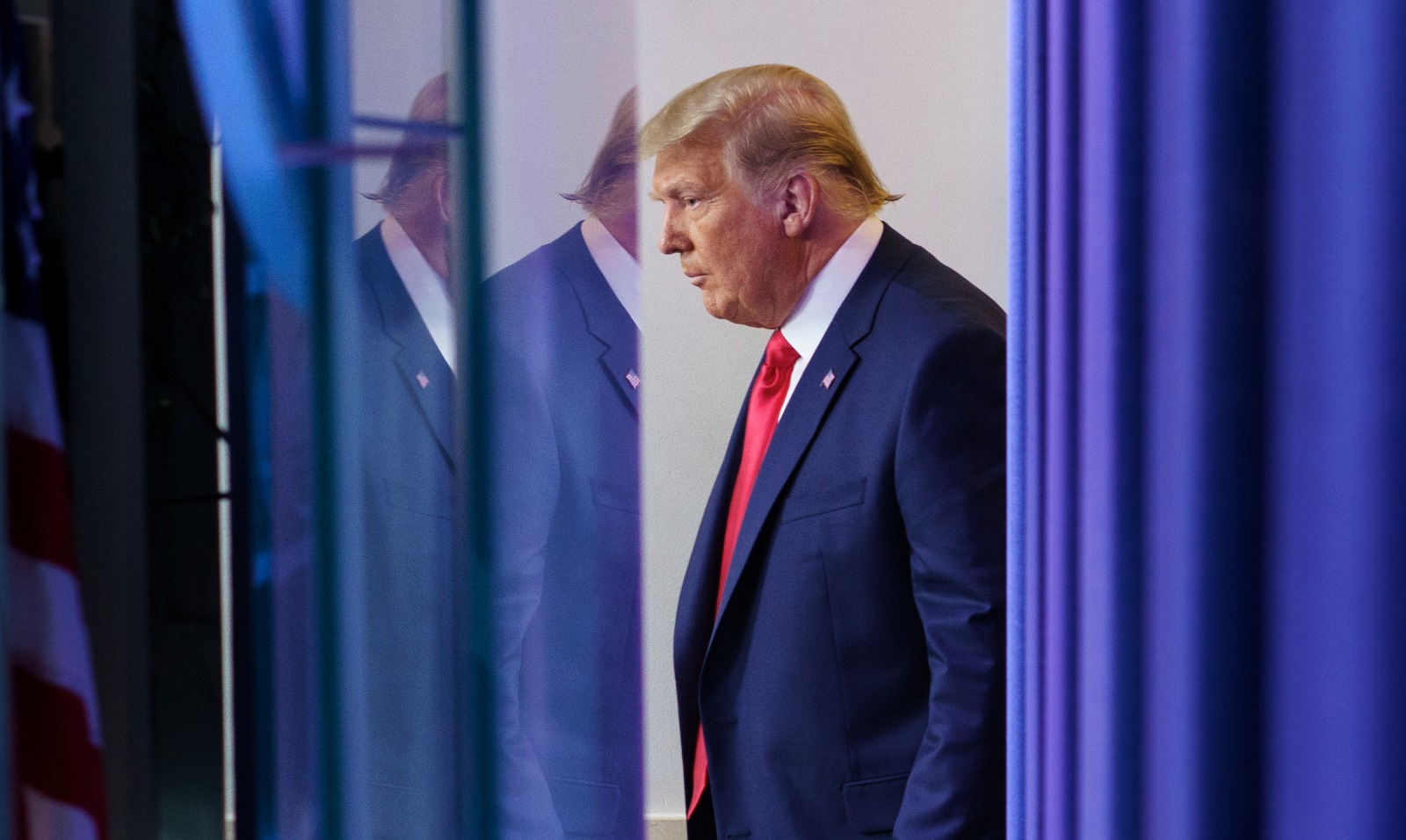By: Chris Lefkow AFP
Donald Trump’s latest indictment sets the stage for a hugely divisive and potentially explosive mash-up of courtroom drama and campaign mayhem as juries and voters race to decide the future of the former US president.
Precisely how the next year will play out remains extremely uncertain on both the legal and political fronts, but the stakes for the 77-year-old Trump couldn’t be higher.
Another indictment expected
Trump has been charged in three criminal cases so far and an indictment looms in a fourth.
The former president is expected to be indicted shortly over his efforts to overturn the 2020 election result in Georgia.
The probe was sparked by Trump’s January 2, 2021 phone call to Georgia election officials during which he pressured them to “find” the 11,780 votes that would reverse his defeat to Democrat Joe Biden in the southern state.
The trials
Trump is scheduled to go on trial in New York in March over hush money payments made to a porn star on the eve of the 2016 election.
Manhattan District Attorney Alvin Bragg has indicated, however, that he would be amenable to moving the date to accommodate the two federal prosecutions — although the final decision is ultimately up to the judge handling the case.
Trump is to go on trial in Florida in May on charges of mishandling top secret government documents after leaving the White House.
But the far more serious case is the one lodged against him by special counsel Jack Smith for conspiring to overturn the 2020 election.
A date for the trial, which is to be held in Washington, is to be set at an August 28 hearing before US District Court Judge Tanya Chutkan.
Trump’s attorneys are expected to seek to delay the conspiracy trial as long as possible — ideally, from his team’s perspective, until after the November 2024 election.
Ty Cobb, who served as a White House special counsel under Trump but has since turned against the former president, said that kind of lag is unlikely.
“Judge Chutkan is an excellent judge, a no-nonsense judge, and she will move this case expeditiously,” Cobb told CNN, adding, however, that the judge would not be interested in “trying this case at a pace that treats him unfairly.
“I do think this case could get to trial shortly after the first of the year and I wouldn’t be surprised to see it being the first one on the docket,” Cobb said.
He said he expected prosecutors would need “somewhere in the neighborhood of four to six weeks to put on their case.”
The trail
Trump has alleged that the various charges brought against him are an attempt by Biden — his likely 2024 opponent — to hamstring his White House campaign.
“My political opponent has hit me with a barrage of weak lawsuits… which require massive amounts of my time & money to adjudicate,” he said on his Truth Social platform. “Resources that would have gone into Ads and Rallies, will now have to be spent fighting these Radical Left Thugs in numerous courts throughout the Country.
“It is Election Interference, & the Supreme Court must intercede.”
Trump’s myriad legal woes do not appear so far, however, to have put a dent in his rock-solid support among most Republican voters.
Trump holds a commanding lead over his rivals for the 2024 Republican nomination, besting his closest challenger — Florida Governor Ron DeSantis — by 54 percent to 17 percent in a recent New York Times/Siena College poll.
The Republican caucus and primary contests to select the party’s standard-bearer for the 2024 election kick off in January, with the nominating convention to be held July 15-18 in Milwaukee, Wisconsin.
The various criminal trials could result in Trump spending as much, if not more, time in court as he does on the campaign trail.
“Federal Court Rule 43 requires that a defendant be present,” said Daniel Richman, a former federal prosecutor who now teaches law at Columbia University.
“The rule makes no provision for a defendant to simply decide he has better things to do, and it remains to be seen whether courts will apply an exception when the ‘thing’ is running for president.”
Carl Tobias, a University of Richmond, said the “general rule in all federal courts and most state courts is that the defendant accused of a crime must be present.”
At the same time, Tobias said, he expects the judges presiding over Trump’s trials may “attempt to accommodate his schedule to the extent that he makes reasonable requests to be absent.”
Trump can also continue to run for president even if convicted in one or more of the criminal cases – nothing in the Constitution prevents a felon from seeking the White House.










Leave a Reply